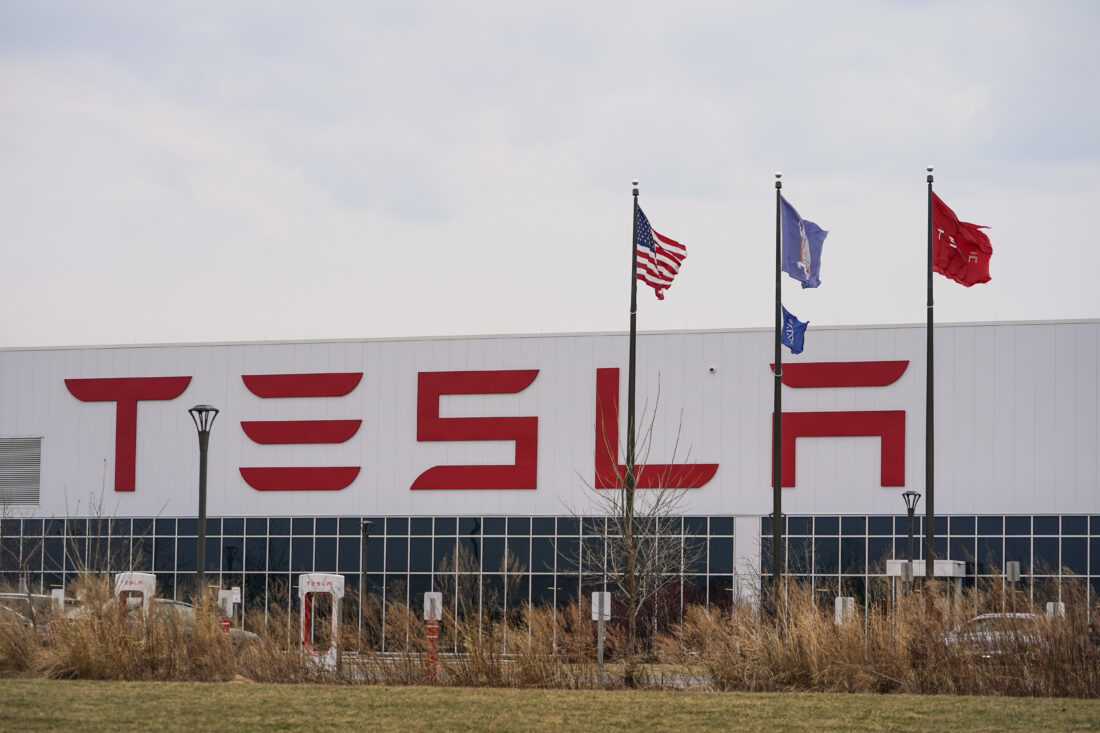High-stakes plants can’t escape microscope

Tesla Gigafactory 2 is shown Friday, March 18, 2022, in Buffalo, N.Y. (AP Photo/Frank Franklin II)
New York state’s roller-coaster investment in a pair of major corporations through its Buffalo Billions program of a decade ago took another wild ride within the last 30 days. As the highly touted Tesla began shedding jobs, nationwide and at the Queen City plant, Dunkirk’s $200 million facility appears to have new life.
On Tuesday, ImmunityBio announced its new bladder-cancer fighting drug Anktiva that was recently approved by the Food & Drug Administration. It will be produced at the company’s locations in both California and at the state-of-the-art plant just east of the city’s border off Route 5.
“Our belief in the importance of this molecule and its potential to evolve immunotherapy to the next level, guided our strategic plan to invest for the future with anticipation of Anktiva’s approval,” said Rich Adcock, CEO & President ImmunityBio. “I’m grateful for our employees and our investors who have supported and believed in our commitment to invest for our long-term vision and future.”
From the start, northern Chautauqua County residents have been skeptical. Then-Gov. Andrew Cuomo came to Dunkirk in February 2016 to announce what would become one of the largest building projects in the region at the time — a 400,000-square-foot state-of-the-art facility that would be built for the pharmaceutical company Athenex.
With hopes for a repowering of the NRG Energy Inc.’s mammoth structure from coal to natural gas to produce electricity losing steam, Cuomo was in a pickle. Only two years before had he come to the city triumphantly to announce a deal for the generating station that never materialized.
Athenex was supposed to be a consolation prize. It quickly became an empty gift box.
Early projections of up to 900 jobs coming to the area by local and state officials were met often with ridicule by many of the non-believers who live here. Painful histories from the 1980s through the 2000s of businesses and manufacturers closing their doors do not make removing the tourniquet easy.
Longtime residents, despite the five-decade regional economic downturn, want proof — not promises. Athenex, once it failed to receive FDA approval for its cancer-fighting drug, began taking on debt. In 2022, it was forced to give up the Dunkirk building to ImmunityBio in a lease deal. More than 15 months later, Athenex filed for Chapter 11 bankruptcy and became another footnote to our region.
ImmunityBio’s entrance to this market was applauded, but took an unceremonious turn. Within six months, it laid off 40 employees while noting major repairs would be needed within the recently built structure for the company to move forward.
This week’s announcement by the company has brought a brighter outlook. The current project is expected to be completed in 12 to 18 months and will bring the ability to produce 1 million vials annually of the drug.
“When we began the development of Anktiva and enlisted our contract manufacturer, we believed that the manufacture of a biologic as complicated as Anktiva was best served by having multiple sites of manufacturing, including in-house capacity and external partners,” said Patrick Soon-Shiong, M.D., executive chairman and global chief scientific and medical officer at ImmunityBio. “Our investment since 2021 in our facilities, together with the agreement entered into with the Serum Institute of India (SII) ensures that both Anktiva and BCG could be available at scale on a global basis.”
BCG — bacillus Calmette-Guerin — is a benign bacteria that induces an immune response in the bladder in proximity to the cancer cells, leading to clearance of the cancer in many patients.
According to ImmunityBio, bladder cancer is the 10th most commonly diagnosed cancer globally, and in the U.S. The American Cancer Society estimates there will be 83,190 new cases and 16,840 deaths from bladder cancer this year.
Company officials note the drug could be available by the middle of this month.
While prospects for the Dunkirk location are starting to look up, Buffalo’s state-funded Tesla location has hit a rough road. On May 3, The Buffalo News reported the company announced additional layoffs at the location. That brought the total number to 311 eliminated positions, or 15% of its workforce, in disbanding its Supercharging operations.
Despite the reductions, about 1,460 workers remain at the plant that was built with $958 million of taxpayer dollars — four times the cost of what was built for Athenex in northern Chautauqua County. That’s a high subsidy for Tesla’s founder and part owner, Elon Musk, who is one of the world’s richest individuals and valued to be worth more than $195 billion.
As a comparison, the recently approved New York state budget totals $237 billion — or $42 billion more than Musk’s total worth. Those figures are reason enough for the critics of these projects to continue to be skeptical.
But Dunkirk, which is desperately in need of some positive news due to the city’s newfound financial struggles, appears to be on the verge of having two major manufacturers boost operations. ImmunityBio could be happening in the coming year and Wells Enterprises, which is planning a ground-breaking on its $250 million project sometime before summer, could both be shots in the arm that lift the region’s economy.
That ultimately is the result that county residents have wanted for nearly a half century. If it all works out, then the journey — and some of the costs — might be worth it.
John D’Agostino is the editor of The Post-Journal, OBSERVER and Times Observer in Warren, Pa. Send comments to jdagostino@observertoday.com or call 716-487-1111, ext. 253.





